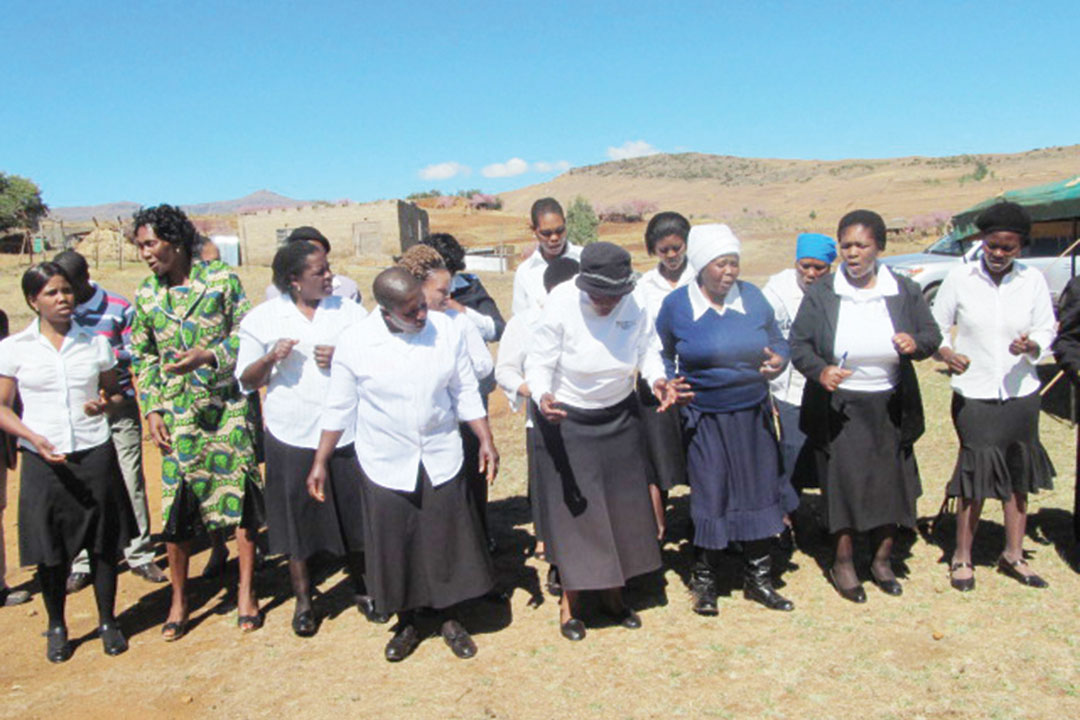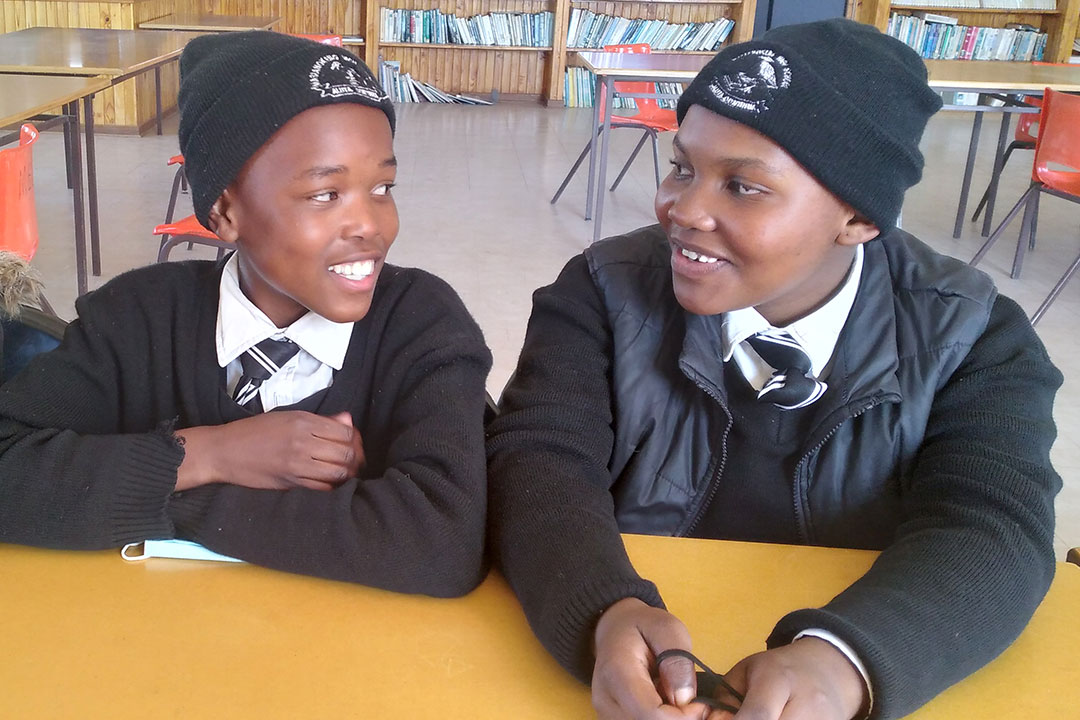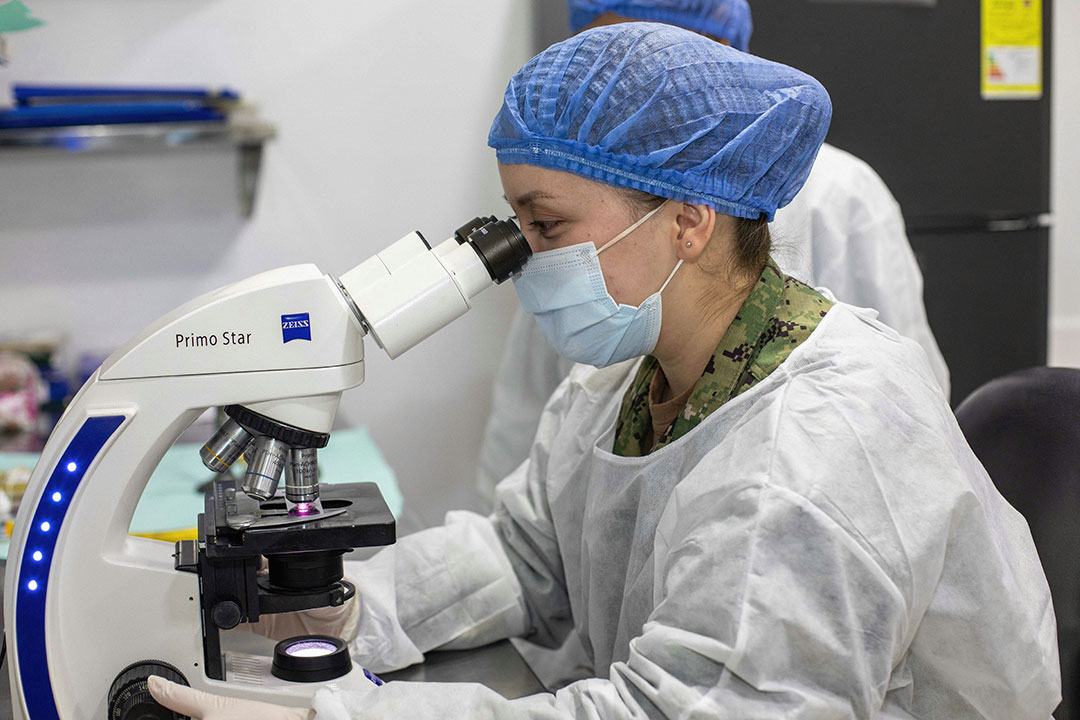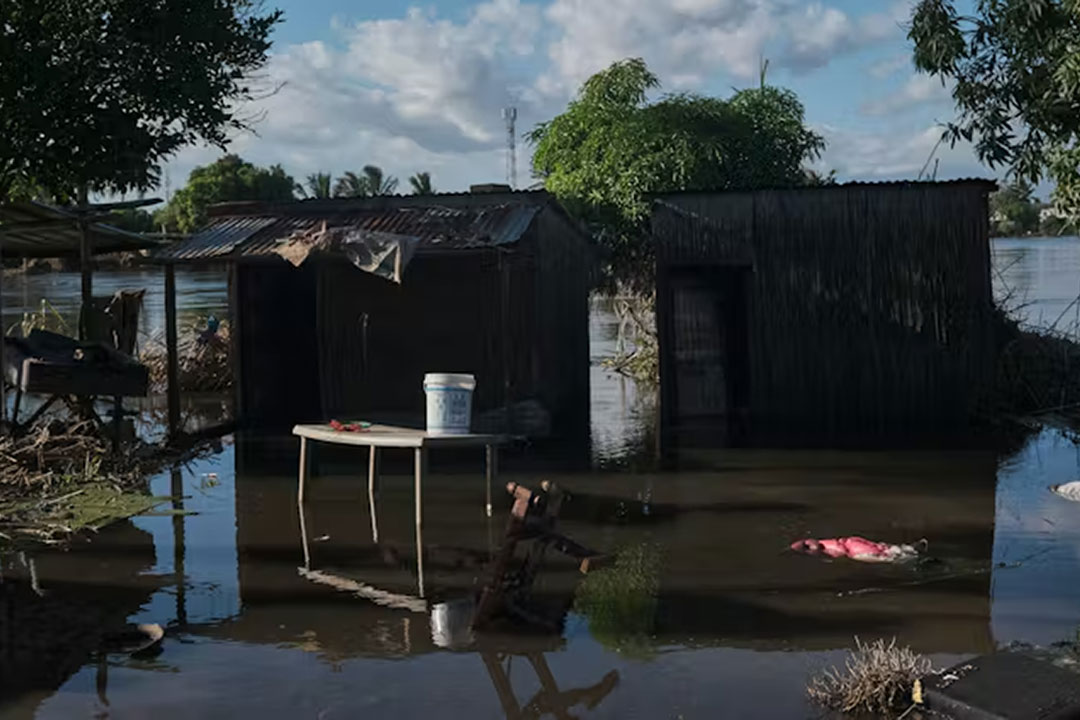COVID-19 vaccine roll-out continues amid torrential rains in Lesotho
Despite floods and landslides, Basotho are finding a way to get vaccinated.
- 16 March 2022
- 4 min read
- by Monyane Khau
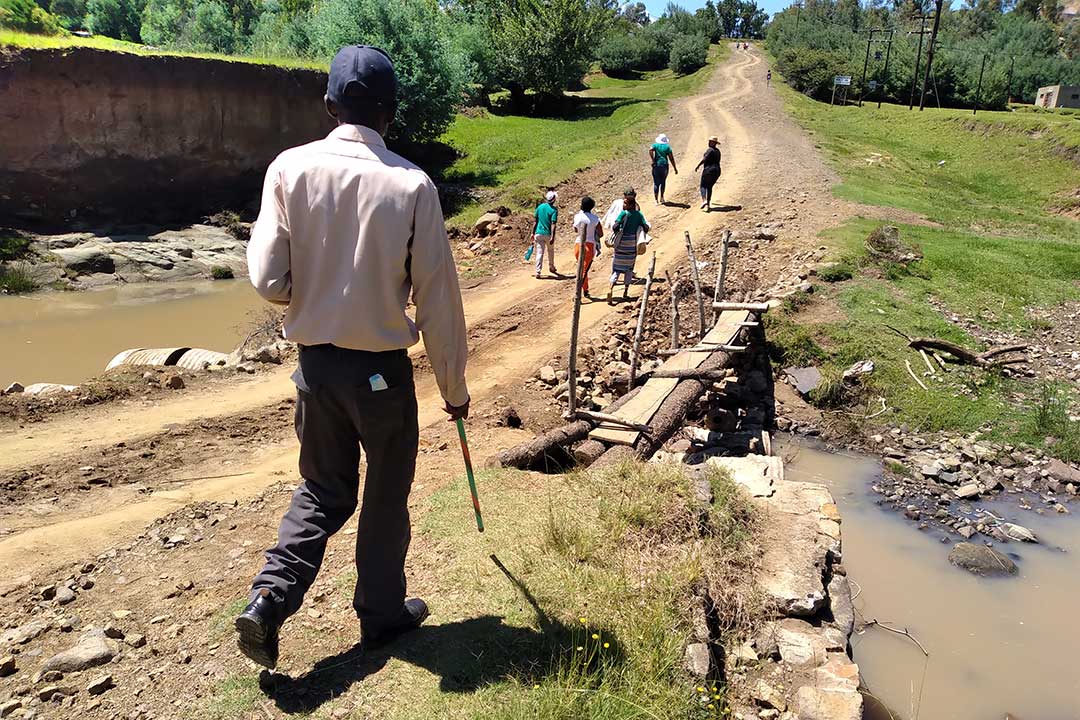
Despite torrential rains leaving a trail of destruction across the country, Lesotho’s Disaster Management Authority (DMA) officer, Maare Keketsi, is upbeat about the country’s prospects of rolling out the COVID-19 vaccine.
“We are dealing with two crises at the same time – climate change and COVID-19.”
Keketsi, who is in charge of the Leribe district, says that villages cut off from essential services due to damaged roads and bridges are still receiving COVID-19 vaccines because “nurses are taking services to the people”.
At least five villages were at some point inaccessible as the floodwaters swallowed up bridges and roads.

Credit: Monyane Khau
The torrential rains, linked to climate change, also caused a large landslide at Pitseng London on 16 January 2022.
Pitseng Chief Khethisa Tau says the nurses administering the vaccine used alternative roads to reach designated areas.
“Alternative, in-village roads were still usable. Public transport drivers used those roads to transport passengers and, likewise, officials used those roads,” Chief Tau says. “Vaccine rollout was hardly affected by the landscape.”
Seitebatso Lesenya says that she was happy that the landslide did not stop her from receiving her jab. Recalling the events of 16 January, Lesenya said she excitedly woke up to prepare herself ahead of the 09:00 rollout. Her mood changed when she heard there had been a landslide at Pitseng, worried that the nurses would not make it to her village.
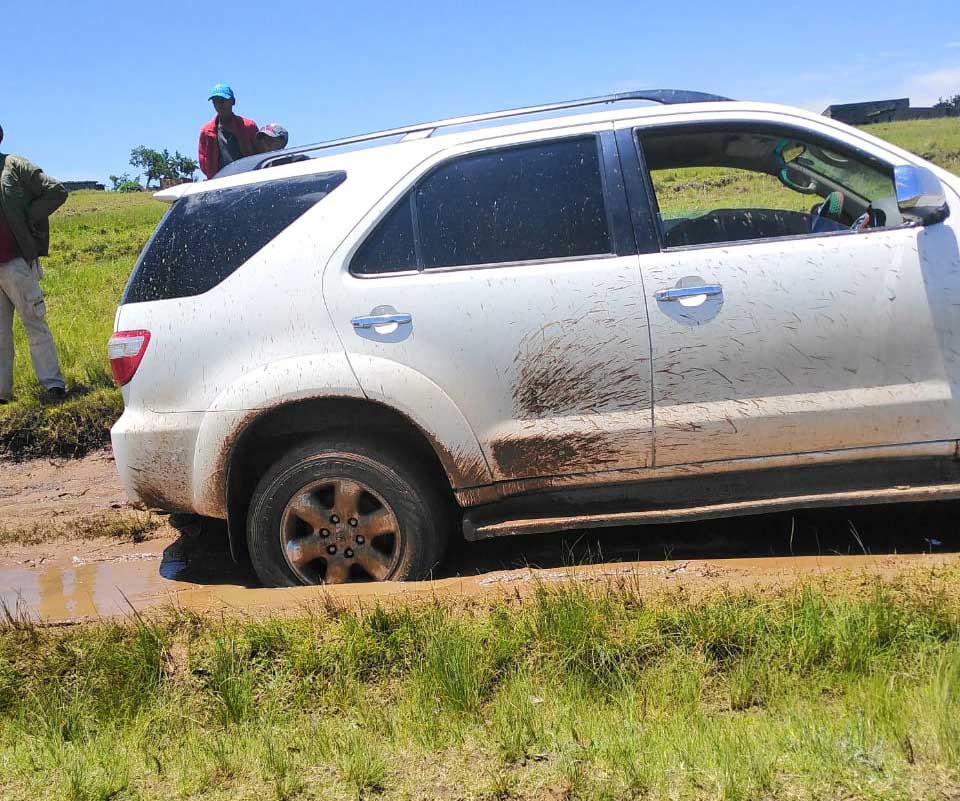
Credit: Leribe district medical team.
Have you read?
“I was very excited when nurses arrived at my village to administer the vaccine despite the landslide happening. I preferred to get jabbed in the village instead of travelling to the clinic in Pitseng,” Lesenya says with a beaming smile on her face.
“I came back for Christmas holidays and was eager to receive my vaccination. I am not always happy with the health services that we receive at healthcare facilities, but I was quite impressed with the manner in which this vaccine was administered to me,” Lesenya adds.
The danger is not over. Keketsi explains that they are now dealing with life-threatening disasters induced by the torrential rains.
“Approximately 280 houses have been destroyed by heavy rainfalls and winds. We are dealing with two crises at the same time – climate change and COVID-19. The climate change-induced torrential rains are likely to cause outbreaks from waterborne diseases due to water contamination caused by incidents like toilet spillages,” he explains.
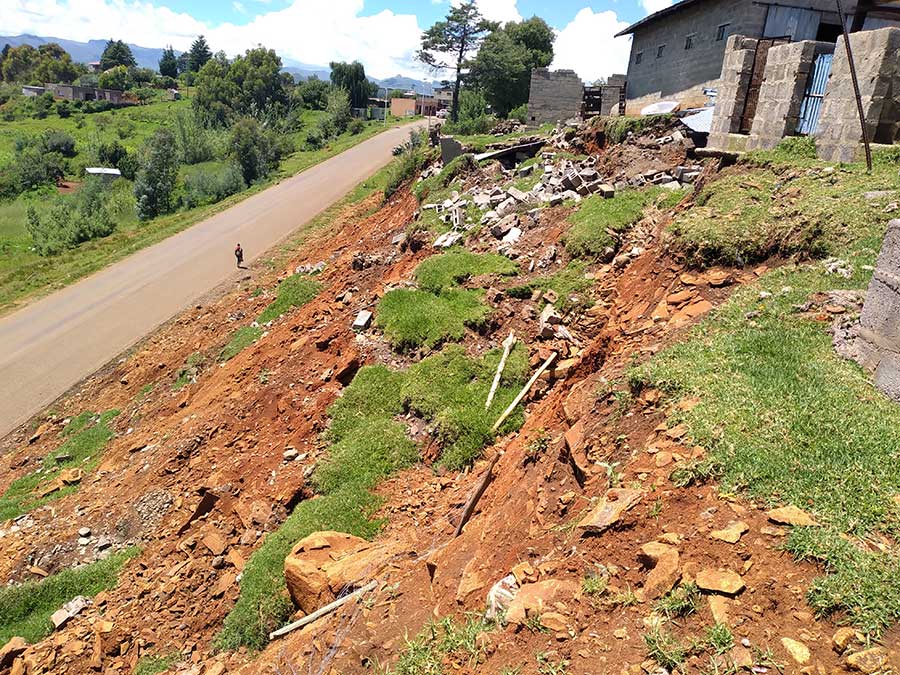
Credit: Monyane Khau
To manage the impact, Keketsi says his office continuously encourages communities to apply “indigenous solutions” to their problems.
“We encourage communities to use their indigenous knowledge to predict natural disasters, which they do,” he adds.
Furthermore, Keketsi says that the government’s decision to “go to the people”, instead of “expecting people to come to nurses” is helping to mitigate the impact of torrential rains on vaccine rollout.
There are, however, still challenges with nurses unable to access some areas due to inaccessibility.
“The administering of the second dose of Pfizer in remote areas has been affected by the heavy rains which damaged bridges and made some roads inaccessible during and after the rains,” says Leribe District Medical Officer Dr Tilo Namane.
“At Matlameng Ha Sekhonyana, the bridge collapsed while the road from Pontmain to the clinic as well as more roads at Ha Sethote and Ha Leaooa were slippery. Another bridge, at Ha Ramapepe and Thaba-Phatśoa, has collapsed. At Peka, nurses were unable to reach Mohlakaqala because the river was overflowing,” Dr Namane adds.
In some cases like Ha Ramapepe, citizens are making the effort to meet the state halfway.
“I stay at the cattle post for months but I needed to get vaccinated. When I came to the village for vaccination and found nurses couldn’t come, I crossed the river on horseback to receive my vaccination,” says Malimabe Faane .
Keketsi says, “We continuously sensitise and mobilise people to go to designated areas to get vaccinated. At the same time, where necessary, nurses are going to the people.”
More from Monyane Khau
Recommended for you

